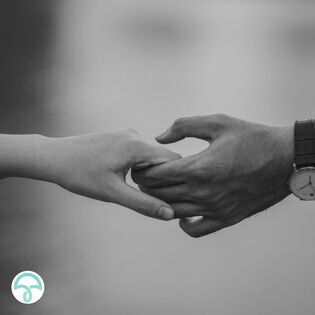How to heal after a break up or divorce Relationships are challenging. We cannot control them. We cannot guarantee that they’ll succeed. In fact, when you come to think about it, what we know about relationships is… not much. Unfortunately relationships are not part of any school curriculum. For most of us, the only “blueprint” we have about relationships is that of our parents — and many times, it’s not an example we can (or should) replicate. So when we’re faced with one of the toughest moments in a relationship, a breakup, most of us not only are overwhelmed by the pain and sense of loss that follows it, but we also lack the tools to process this trauma and start our path towards healing. If you’re going through a breakup, I’m sorry. I hope that you’ll find solace in these steps below. 8 Tips and Steps For Healing After Break UpStep 1: Understand that “failing” is normal for many relationshipsSome of our relationships during adulthood are going to fail. Either because we didn’t do the right things or because we didn’t find the right person or because we grew apart… The why doesn’t matter. A breakup is a very normal part of many of the relationships in our lives. It happens to all of us at some point or other — there is nothing shameful about it happening to you now. Of course, that doesn’t negate the fact that a breakup (and by breakup we mean any kind of separation, an end of a relationship or a divorce) is a very painful moment. And it is followed by an equally painful, long and difficult process: the process of healing. Step 2: Recognize that breakup emotions are normalYou’re bound to experience a wave of emotions after a breakup. These emotions can be:
And that's why healing after a breakup is a process that takes time. You have to have to go through all these emotions and understand why you feel each and every one of them. If you try to put the lid on your feelings and think “Well, I’ll just move on. I don't need to deal with that. I’ll find another person and forget this ever happened,” you’ll only end up hurting yourself more in the long run. If you run into the next relationship before dealing with the issues created by this breakup, you risk projecting those issues to your next partner. And that's not fair. So before anything else, you need to recognize this emotional roller-coaster. And accept you’ll be riding it for a while. But what if some feelings are negative? Like anger? Well, you still shouldn’t shy away from them. Negative emotions are still valid and you should make room for them; acknowledge them. That’s the only way to eventually move past them and move on. Step 3: Try to look back on the good thingsVery often, when a relationship ends, we tend to remember all the bad things: how that person hurt us or how they didn’t make us happy to begin with. But to get a healthy closure and avoid creeping feelings of resentment (“I wasted my time with that person”), you should try to acknowledge the good things about that relationship. Don’t regret the happy moments you shared. Accept that even though the relationship didn’t evolve as you may have hoped, you still got something positive out of it. At the very least, you’ve learned something about yourself and now you can take that knowledge and use it for your own development. Related:Step 4: Accept that it’s not your fault the relationship endedIt takes two to tango. Which means that whatever happened in your relationship, it was the result and the responsibility of two people, not one. So it's both of you that created the relationship and both of you who didn’t manage to keep it thriving for x, y, z reasons. Even though you did your best and tried hard, there's a big percentage of a relationship that we simply cannot control or change. So don’t assign blame to yourself. Step 5: Accept that it takes time to move onHealing takes as long as it takes. Don't pressure yourself because six months or a year has passed and you feel you’re still struggling with residual pain or feelings about your ex partner. Everyone has their own unique way of processing a breakup. This is simply yours. Related:Step 6: Accept this is painful for you both Thinking that the other person, the one who initiated the breakup, isn’t going through a bad time right now, is a destructive thought pattern. It’s also not true. I ran divorce support groups for years and I can tell you I saw both people who initiated the divorce and people who were on the receiving end in the same group, sharing the same pain. Any loss we experience in our life is painful. So don’t think the other person “has it easy.” That being said... Step 7: Focus on yourself...You shouldn’t compare your post-breakup journey to that of your ex. They may be thriving — or not. They may have moved on and started a new family — or not. This shouldn’t affect your journey anymore. Now more than ever, it’s time to focus on yourself. Especially if you’ve been in a relationship for a while, you’ve probably developed common habits, routines you did together. These routines may have defined your life up until now, but now is the time to figure out how to “fill in the gaps” of the other person and find out who you are without them. Focus on what you need and what makes you feel better — not on what your ex partner, your family or society even may think would be a good idea. Do what’s best for yourself, even if that means staying alone for now as you figure you out. Step 8: Rebuild your trust in relationshipsIt’s very common in the beginning, especially if you’ve been hurt a lot by the breakup, to feel like you don't want to be with anyone anymore. To feel like your trust in relationships has been shuttered. But by going through this long and hard process, by allowing yourself to grieve, to build yourself up again, to pick up your pieces and connect with yourself again, you’ll learn to rebuild your trust in the most important person: you. And eventually (and only you can decide when that will be), you’ll be called to extend that trust to someone else. By focusing on yourself as we mentioned above, and staying single for a while to figure out what makes you tick and what your needs truly are, you can enter this new relationship without carrying the ghosts of the past one. Related:You are not alone.Breaking up is a painful process. The most important thing is that you take care of yourself and focus on your healing before you meet another person. Take good care of yourself — and take as much time as you need, so that when you’re ready you can build the healthy relationship you deserve. And remember: you are not alone. What's Next?
0 Comments
Your comment will be posted after it is approved.
Leave a Reply. |
Therapy |
|
